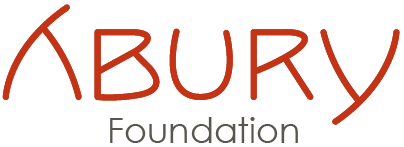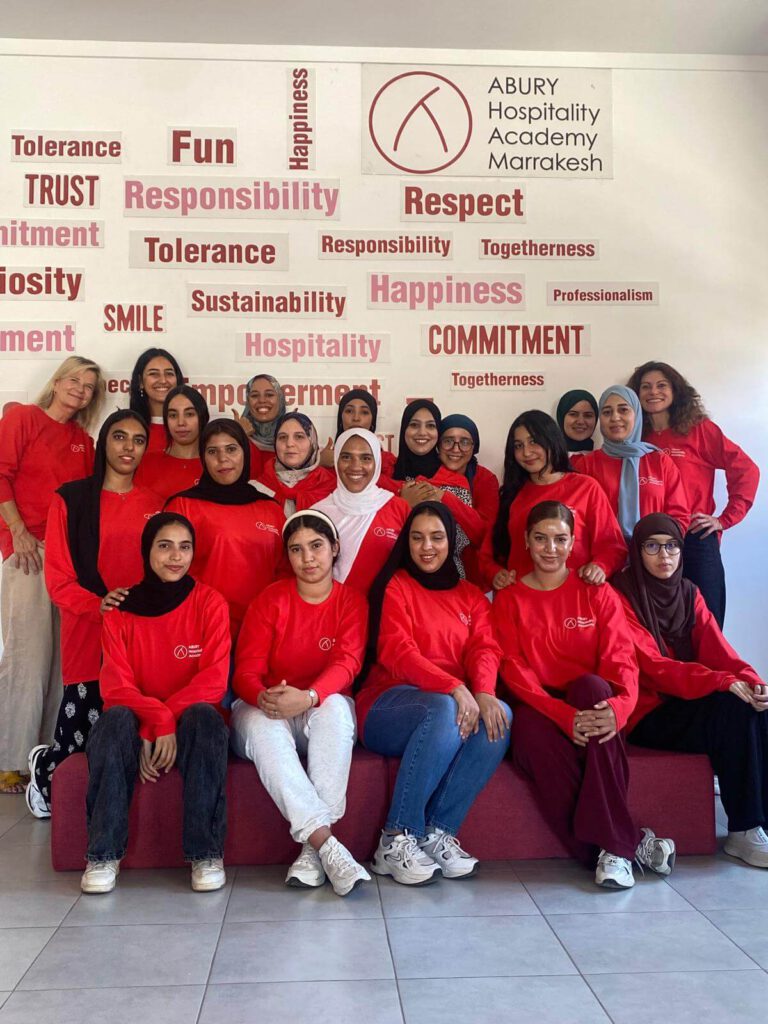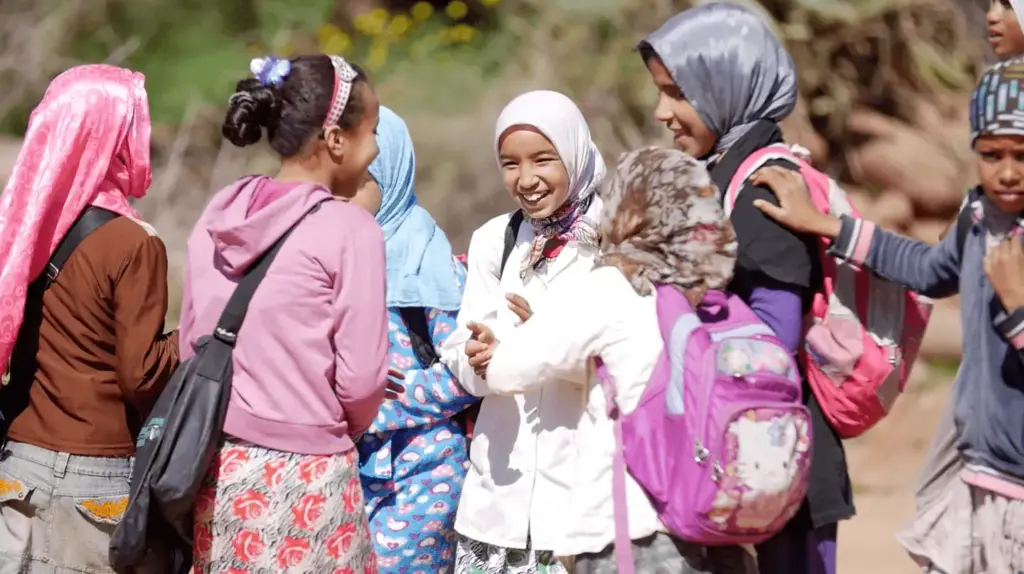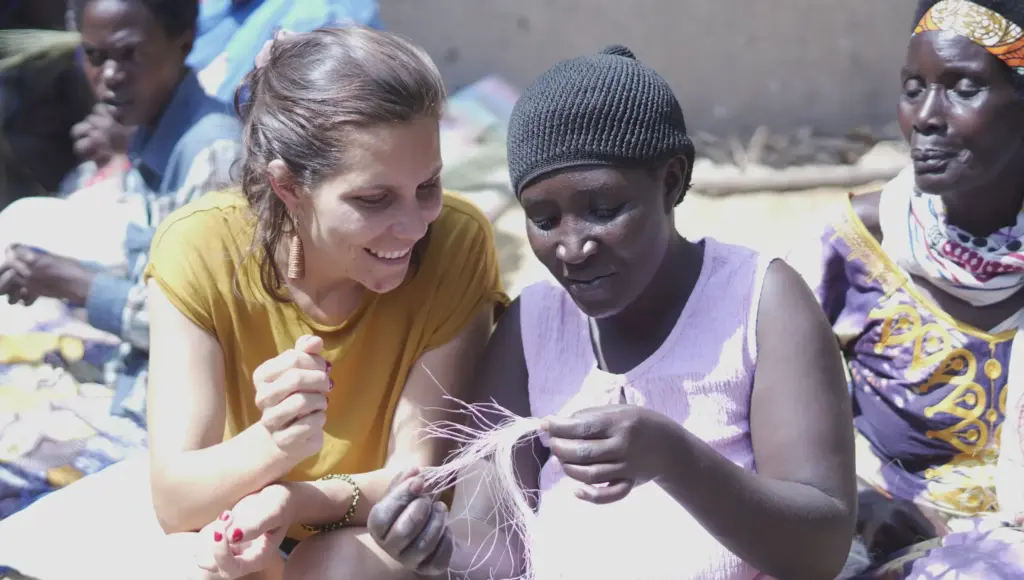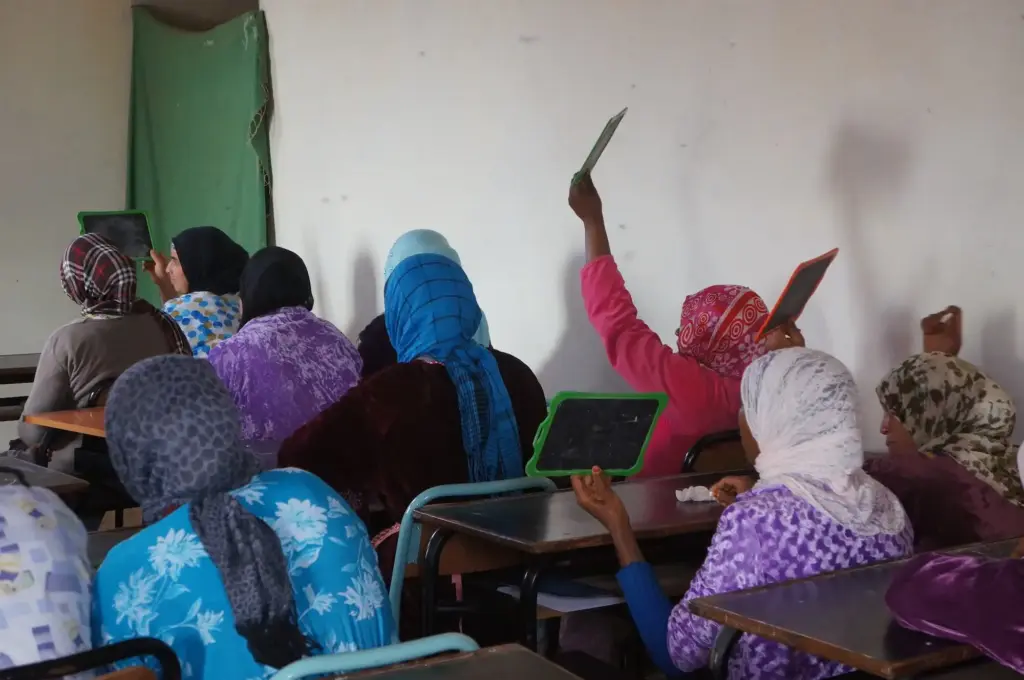Status quo and future opportunities
Education in Africa
Education is a key factor in the development of any society. It enables people to realise their potential, promotes economic growth and contributes to social stability. Given the continent’s immense potential and the major challenges still facing the local education situation, it is clear why education plays a central role in Africa in particular.

Current Education Situation in Africa
Access to Education in Africa
Access to education varies considerably across the African continent. Countries such as South Africa and Kenya have made significant strides in improving school enrolment rates, while others, such as Niger and Chad, face major hurdles. The discrepancy in enrolment rates is due to a range of factors, including the economic situation, political stability, and regional conflicts.
Quality of Education in Africa
The quality of education in many African countries remains a significant challenge. Poor learning outcomes and high dropout rates are prevalent. The primary causes include a lack of infrastructure, inadequate funding and poorly trained teachers. These problems affect students’ ability to learn basic skills and successfully complete their education.
Challenges and Problems: Education in Africa in Crisis
The social, economic and infrastructural challenges faced by many African countries have a negative impact on educational progress. These challenges have led to significant inequalities and crises in the education system, which must be urgently addressed to ensure that all children and young people have a fair chance at education.
Educational Inequality in Africa
There is a significant disparity in educational opportunities in Africa, with girls often facing greater challenges than boys in accessing quality education. In many rural areas, the social and economic pressures associated with early marriage and pregnancy, as well as traditional gender roles, contribute to girls dropping out of school at an early age. Social barriers such as poverty and ethnic discrimination further exacerbate these inequalities. It is therefore essential that education in Africa be made possible in a variety of ways in order to give all young people the opportunity to attend school.

Regional Differences and Infrastructure Problems
While urban areas are generally better equipped and offer more accessible educational facilities, rural areas often face considerable challenges in implementing educational concepts due to a lack of the necessary infrastructure. According to the German Federal Statistical Office, the sub-Saharan Africa region is particularly affected. In this region, nine out of ten primary school-aged children—more than 100 million young people—receive inadequate or no education. The countries with the highest rates of out-of-school children in the world are South Sudan (68 per cent), Liberia (62 per cent), Eritrea (57 per cent), Equatorial Guinea.
Root Causes of Educational Challenges in Africa: Political, Economic, and Social Factors
The causes of education problems in Africa are numerous. Political instability and armed conflicts result in the destruction of education infrastructure and the displacement of teachers and pupils from their schools. Another contributing factor is the failure of policy regarding education in Africa, which is often responsible for inadequate funding and management of the education sector. Economic factors such as extreme poverty make it challenging for many families to afford the cost of schooling, even if it is officially free in some countries. A New York Times report from 2023 indicates that children in Sierra Leone are sometimes subjected to corporal punishment due to their inability to pay the school fees, which are not officially required. This highlights the need for continued efforts to improve education in Africa, with a particular focus on those with an educational mandate to drive change.


Progress in Education for Africa
Despite numerous challenges, there have been a number of positive developments and progress in the African education sector. In several countries, reforms have been introduced with the objective of improving the education system and the quality of education. Rwanda is a case in point. Since 2018, it has implemented comprehensive education reforms, resulting in a notable increase in enrolment rates and improvements in the quality of education.
Transforming Africa’s Business Landscape Through Education
The future of Africa as a business location depends crucially on the quality of its education systems. A well-educated population is a key driver of economic growth and innovation. It is therefore clear that investment in education is essential to promote the continent’s competitiveness and economic development.
The Seychelles provides a prime example of a successful education initiative in Africa, offering a model for positive change. It is the most educated country in Africa and the only African country to be ranked among the top 50 education systems in the world by UNESCO’s Education for All initiative. The country has implemented targeted measures to enhance the quality of education, including improvements to teacher training and the introduction of ten years of free, compulsory education for all children up to the age of 18.
Education as an Opportunity for Girls and Women
Education is a powerful tool for promoting equal rights. It directly links to opportunities for career prospects and social participation. Girls and women who have access to education are better able to claim their rights, become economically independent and play an active role in their society. Studies show that educated women are more likely to have their children immunised, access better healthcare and send their own children to school, which in turn triggers a virtuous cycle of education. This shows how education can also significantly advance Africa in the area of women’s rights.
Targeted programmes and initiatives that focus on the education of girls and women have already demonstrated that concentrated efforts in this area can lead to notable improvements.
The ABURY Foundation’s role in advancing Education in Africa
The ABURY Foundation is dedicated to advancing education in Africa through the initiation of educational projects and the explicit education of girls and women. Our initiatives and programmes for the education and economic empowerment of girls and young women in rural regions of Africa have been highly successful. Our work has a significant and long-lasting positive impact on the educational situation and the situation of women’s rights in Africa. As part of our charitable work, we have a number of women’s empowerment projects with a focus on educational programmes, female entrepreneurship and intercultural exchange:
Help us to promote education in Africa!
Donate a regular amount and become part of our circle of friends.
Frequently asked questions
What are the biggest challenges for education in Africa?
The most significant challenges facing the education sector in Africa are a lack of infrastructure, insufficient funding, a lack of adequately trained teachers, educational inequalities between urban and rural areas, and gender discrimination. The prevalence of political instability, armed conflicts and extreme poverty serves to compound these challenges.
Why is education in Africa so important for the continent's development?
Education is crucial for economic development, social stability and individual fulfilment. It empowers people to realise their potential, promotes innovation and economic growth and helps to reduce poverty and inequality. In addition, education is also key to promoting democracy and gender equality, suggesting that improving education would also provide Africa with solutions to many other challenges.
How does education contribute to gender equality in Africa?
Education is a powerful tool for promoting gender equality. Girls and women who have access to education are better able to claim their rights, become economically independent and play an active role in their society. Educated women are more likely to have their children immunised, access better healthcare and send their own children to school, creating a virtuous cycle of education.
What does the ABURY Foundation do to promote education in Africa?
The ABURY Foundation is dedicated to advancing educational opportunities in Africa through the implementation of educational initiatives and the explicit education of girls and women. The ABURY Foundation’s initiatives and programmes for the education and economic empowerment of girls and young women in rural regions of Africa have a significant and long-lasting positive impact on the educational situation and the status of women’s rights in Africa.
